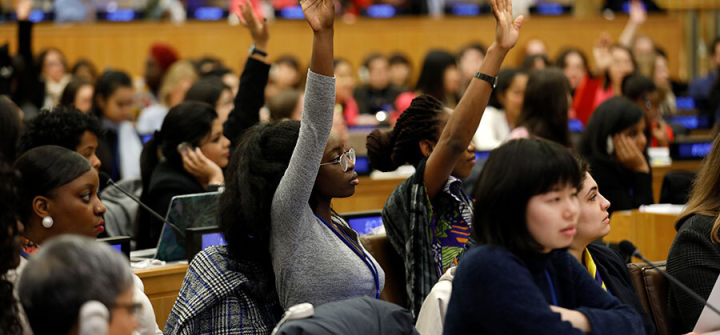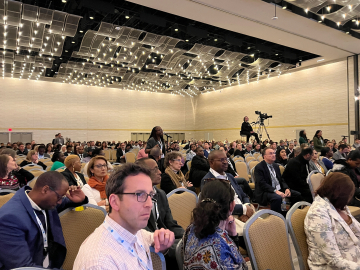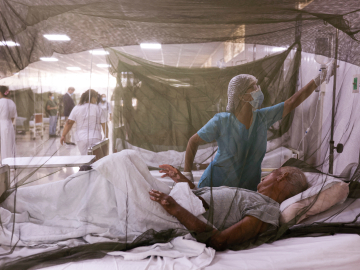Smashing Obstacles to Women's Global Health Leadership
The COVID-19 pandemic put the extraordinary power and impact of women leaders around the world on full display. From national leaders in Singapore, New Zealand, and Germany to local and community leaders across the US, women are being lauded for making a difference in their communities.
This is not a new phenomenon. In fact, studies in India and Afghanistan have shown that districts with women-elected officials have documented better health and education outcomes.
Yet even as women in leadership positions gain recognition, they continue to face challenges throughout their leadership journeys. A recent study conducted by Moyer et al. found that women all around the world—from low- to high-income countries—face many common barriers in their careers: a lack of mentorship, difficulty balancing work and home, and a lack of assertiveness or confidence. Women from low-resource settings were more likely also to cite lack of opportunities, lack of funding for networking, and safety concerns than their counterparts in high-income countries.
A study in 2016 by Downs et al. focused on women in LMICs reported that they also continue to face sexist assumptions that they have achieved leadership positions through nepotism or sexual favor. The authors perfectly state the challenge: “[women] are prevented from pursuing leadership positions, and they are punished for achieving them.”
The benefits of women in leadership positions and the barriers they face have been well-documented. Now, it is time for the global health community to pursue solutions-oriented approaches that actively engage global health institutions to tackle systemic barriers. Some organizations have designed programs that support women leaders through immersive experiences, coaching, and mentorship. But without enabling environments and supportive institutional systems and infrastructures, these burgeoning leaders will likely continue to face hurdles.
A new virtual seminar series, “Women in Global Health: Exploring Non-Academic Careers,” launched by the Johns Hopkins Center for Global Health with support from the Johns Hopkins University Provost’s PhD Professional Development Initiative, will explore new approaches. Over the next year, the 6-session series will feature short talks by prominent women leaders in the field representing different types of organizations (from NGOs to government and international funding agencies) who will discuss their own leadership journey. Each session will include small interactive working groups designed to develop, share, and collate strategies to support women with diverse interests from a range of professional fields as they pursue and achieve leadership roles.
The goal is 2-fold: Introduce academic trainees to a variety of career paths, and develop solutions to pressing leadership challenges uniquely faced by women in global health.
The inaugural session on Monday July 13, 2020 will feature a talk by Jhpiego’s CEO Leslie Mancuso, PhD, RN, FAAN, who will focus on taking advantage of unexpected opportunities, getting comfortable being uncomfortable, and holding onto your core values. Click here to register for the session.
Anna Kalbarczyk, MPH, DrPH is the assistant director of the Johns Hopkins Center for Global Health and a faculty member in the Department of International Health at the Bloomberg School of Public Health.
For the latest, most reliable COVID-19 insights from some of the world’s most respected global health experts, see Global Health NOW’s COVID-19 Expert Reality Check.
Join the tens of thousands of subscribers who rely on Global Health NOW summaries and exclusive articles for the latest public health news. Sign up for our free weekday enewsletter, and please share the link with friends and colleagues: https://www.globalhealthnow.org/subscribe
Women participating in an Intergenerational Dialogue event during the UN Commission on the Status of Women, March 2019, New York. Flickr via Creative Commons License.




